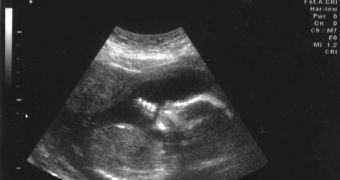Researchers at the University of Bristol, in the United Kingdom, may have made a significant discovery about obesity. They say that the genes of babies who go on to become obese later in life exhibit certain differences from the genetic code of infants who will remain of normal weight.
Working together with colleagues at the Newcastle University, the UB group analyzed umbilical cord blood samples from 178 babies. The data were then cross-references with studies of genes known to play a role in controlling body weight.
The investigation revealed that 9 of 24 genes involved in this process could be used to predict the weight of babies in the study group at the age of 9. This could very well be an epigenetic pattern for obesity, or for being overweight.
“We were looking at what are known as 'epigenetic patterns', the chemical signals that turn 'on' or 'off' certain genes. In this research we found a link between those found at birth and a child’s weight when they were nine,” professor Caroline Relton explains.
“This suggests that our DNA could be marked before birth and these marks could predict our later body weight,” adds the scientist, who is a senior lecturer in Epigenetic Epidemiology at NU.
Details of the new investigation were published in the March 14 issue of PLoS ONE, a journal edited by the Public Library of Science. The emerging science of epigenetics seeks to explain how the environment and genome work together to influence our health in the long run.
One of the most important things scientists were able to determine thus far is that environmental factors such as the amount of exercise we get, how much we smoke, how many hormones our bodies produce, or how we diet, can influence genetic expression patterns even before birth.
“While we have discovered an association between these genes and body size in childhood we need to carry out further studies to establish whether influencing the expression of these genes by altering epigenetic patterns is indeed a trigger to obesity,” Relton says.
The new investigation was based on data collected from the Bristol-based Children of the 90s study and a Newcastle-based study of premature children, the team adds. Most of the kids in the study were tracked for their entire lives.

 14 DAY TRIAL //
14 DAY TRIAL //